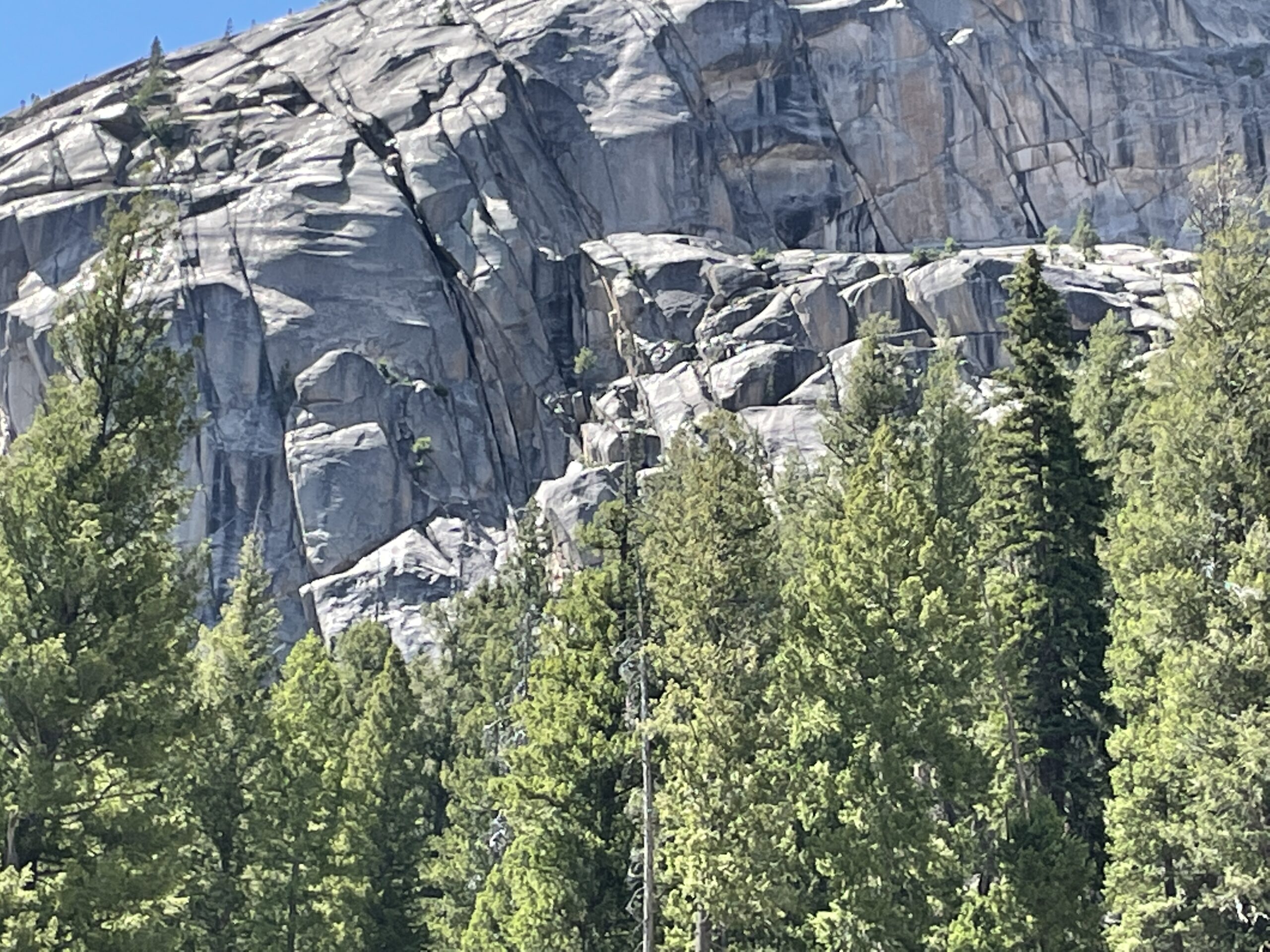It might be a good time to review what the Bible says about what is usually called, “The Role of Women.” Although I will use that phrase, I don’t like it. It is cold, and mechanical. It does not convey what really needs to be said. Women don’t have a role. Women are in God’s creation in order to glorify God in some way. That is not a “role,” that is a glory, an honor, a beauty.
In addition, when we speak of the woman, we isolate her from the man. It is as if the world’s ideas of feminine freedoms, independence, and a hint of Evolution thrown in for good measure all come into this discussion. She is not independent of a man, and a man is not independent of the women (1 Corinthians 11:10-12). Yet, we treat these discussions as if the man and woman are simple independent entities and the role of the man or woman have no bearing on each other.
This is the fatal flaw of this whole discussion. Progressive, worldly, fleshly-minded women want to see themselves as an autonomous, independent person. These women have to overcome a deeply-created sense that she exists “for a man.”
Men, too, who are progressive, worldly, and fleshly-minded want to see themselves as independent, self-existing and autonomous. They also have to overcome the deeply-seated sense that they exist “for a woman.”
It is this point that makes the arguments around the roles of men and women heated. So many who argue for the independence, and egalitarian stance for women do so as if a woman is simply another created entity, without ties to anyone or anything. But, that denies the facts of nature, and most especially, Scripture.
The Lone Adam
In Genesis 1 and 2, we have the only accurately recorded account of the creation of the man and woman. Situated in a six, 24-hour day creation week, with the seventh day being deemed a day of rest patterned after God’s rest, cessation, from further creating. God creates a man and a woman, from whom all people would originate by means of the normal processes of conception and birth.
In this record, we learn an immense amount concerning the purpose of God for said man and woman. In this record, we learn that God had specific responsibilities for each before Him, and these responsibilities were never rescinded. Even in Christ, the Messiah, the responsibilities of man and woman are not ended. They are the bases of so much of the New Testament (NT) in regard to teaching on the subject.
In fact, in a few key passages, our record of Genesis 1-3 is referred to in order to uphold this original design. In each case, the record is treated as factual, and durable (lasts into the Church Age).1
So, it seems to me, that probably the simplest thing I can do to address the roles of men and women is to do a cursory overview of the original creation account.
Eve was named Eve by Adam (Genesis 3:20). She did not assume a name, or give herself a name. Adam told her that is what she would be called.
The last time we see Adam naming anything, is one chapter earlier in Genesis. There, Adam gave names to the animals of the earth. Adam, in exercising his authority and responsibility to YHWH, named the animals and whatever he named them, that name stuck; God did not override with His own names for the animals (Genesis 2:19). Imagine, all the animals of creation being dependent upon the man for their names. This final authority is inherent in the man, Adam.
However, we also read in Genesis 2:20, that upon naming the animals which paraded past him, he realized that there was no created being similar to himself. There was no corresponding partner, if you will.
And the man gave names to all the cattle and to the birds of the sky and to every beast of the field; but for Adam there was not found a helper suitable for him. (Genesis 2:20, LSB)
This realization from Adam is recorded for us. But, if you can imagine the actual point at which Adam, maybe after seeing the last of the animals walk (or waddle, or slither) past him, he sees he is alone.
It is this fact of Adam’s solitude that God records for the reader to see this crisis and how God will correct it. Adam “realized” that he was alone, something God already knew and predetermined (Genesis 2:18). It is obvious from what is written, that “it is not good for the man to be alone.”
Meet Mrs. Adam
By God’s creative power, Adam is put to rest. While asleep, God takes out of Adam, as the Creator God has the right and power to do, and around that flesh and bone material, “builds” a woman.2 From the man’s material, God created the woman. This is why Paul wrote that the “woman has her origin from the man.”
Upon waking, Adam sees the solution to the problem. Remember, the problem was that the man was alone. That is, after naming all the animals on the earth, he sees there is no one who resembles himself. Now, upon opening his eyes, he sees a person who resembles himself, although not identical. The differences go without saying, however.
His joy and exuberance is recorded for us in his song, a song of praise to God for His handiwork.
Then the man said,
“This one finally is bone of my bones,
And flesh of my flesh;
This one shall be called Woman,
Because this one was taken out of Man.” (Genesis 2:23, LSB)
God revealed to Adam where this (if I may say) creature came from. He made her from his material. She is him, but not him. The beauty and creativity, and glory to God for His work is on display in her. She is now called, by Adam, not God, “woman,” because of this work of creation.
The word “woman” in the original language of the Old Testament (OT) is the feminine form of the same word for man. That is not to say that Eve was a feminine man. Rather, it is to say that Adam understood that she resembles him, and yet is complementary to himself. She is not male. She is female. Yet, she has arms, head, legs, like he does. But, there are other features that are different.
This original design tells us that she is not simply another him. She is her. He is him. There is no other way to say it. This original design cannot be changed. The souls of the man and woman are unique to the man and woman (assuming YHWH created her soul at the moment of the building of her body as He did Adam-Genesis 2:7).
She is presented to Adam by YHWH as his wife; YHWH brought her to the man (Genesis 2:22). She is “for” him (Genesis 2:20). She complements him. She resembles him. She is not him.
He, now, is complete. He is “one.” He is now free to laser-focus his love, the love of God, upon her. He could not do that to the beasts, hence his realization-“I have no one to love.” But, as God is love (1 John 4:7), and Adam is made in the direct image of God, he is now given the high honor to love her.
I believe that the fundamental quality of Adam towards Eve is love (Ephesians 5:25), a love which, after the fall especially, requires the giving of himself for her sanctification, her likeness to Christ, her good.
Holy Matrimony
What, now, should the man and woman do. They are standing there looking at one another. Now what?
In that pre-fall condition, there was no shame in their nakedness (Genesis 2:25). There was only glory to God. The statement of Genesis 2:24, “…they shall become one flesh,” is understood as the permission of YHWH for the man and woman in that state of consecrated relationship (which we call “marriage”), for sexual relationship.
It is interesting that God created two from one. And in the marriage relationship, the two become one. Jesus says that God joins the two together in this union (Matthew 19:6). The relationship, now, is ongoing union, a “one-ness.” But, and this is important, they are not the same.
Look at the differences:
- Adam named the creatures, and Eve.
- Adam is made in the direct image3of God, Eve was made in the image of the man (cf. 1 Corinthians 11:7).
- Adam was made first, then the woman (see 1 Timothy 2:13).
- Adam is male, the woman female (see Genesis 5:2).
- God commanded Adam; Adam commanded the woman (Genesis 2:16; 3:2-3; cp 1 Timothy .
In short, Adam and Eve were not the same. They were each designed with a specific role in the mind of God. And, I as opened this essay, these differences have not been rescinded. They have been reiterated, and the man and woman are held accountable to them.
Conclusion
Does this explicitly mean that a woman cannot work outside the home? Well, let’s ask it a different way. Does this mean that a man should not work? In all fairness, we should look at it that way. Is it right for a man to simply not work, but stay home and be unproductive. I would echo Paul’s statement, “Does not even nature itself” tell you that is ridiculous? He was to work (Genesis 2:5; 15). He was to guard the place where Adam and YHWH met,4 i.e. the garden (Genesis 2:15). He was commanded to eat (Genesis 2:16). He was commanded to not eat of the Tree of the Knowledge of Good and Evil (Genesis 2:16).
I wrote this essay avoiding the usual arguments for men and women’s roles. Instead, we need to go back to the drawing board and look at the foundation.
I hope this is helpful.
- See Matthew 19:5; Mark 10:7-8; 1 Corinthians 6:16; 1 Corinthians 11:12; Ephesians 5:31; see also 1 Timothy 2:15. ↩
- The Hebrew term for the creation of the man is “formed” (Heb. yāșar), as in a potter forming a clay pot. However, the term for the creation of the woman is “builds/make” (Heb. bānâ). The man was formed from the dust of the earth, and the woman was built from the material of the man. ↩
- The best ways to understand the idea of “image” is by a corresponding word, “pattern.” This is a much larger discussion than I can give it in this essay. However, the summary meaning of “image and likeness” is that the man was made with corresponding body parts that would be able to carry out the purpose of God in the world. He would work, he would love, he would have a family, he would recreate. All of these things are the purpose of God for the man and correspond to God, represented by the man’s physical body. The woman is made in the image of God through her being patterned after the man’s physical body, but with obvious, and beautiful, differences. These differences correspond to the functions of each, the man as procreator, and woman as one who would carry and bear a child. ↩
- The Hebrew word for “keep” is the word for “guard/treat as/attend to” (šāmar). This does not mean to guard it from danger. It means to treat it as holy, in the same way the Mt. Horeb, a mountain Moses visited many times with his flocks, was to be treated as holy by Moses because God was there (Exodus 3:1; 19:1-2). ↩

